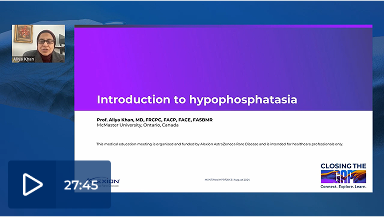
healthcare professional


Key question addressed within this educational session:
Prof. Dr Adela Chirita-Emandi

Consultant in Paediatrics and Medical Genetics
Center of Genomic Medicine Timisoara, "Victor Babes" University of Medicine and Pharmacy, Timisoara, Romania
Regional Center of Medical Genetics, "Louis Turcanu" Clinical Emergency Hospital for Children, Timisoara, Romania
Since 2021, Prof. Dr Adela Chirita-Emandi has been Professor of Genetics at the Center of Genomic Medicine, at “Victor Babes” University of Medicine and Pharmacy, Timișoara, Romania. She is also part of the Center of Genomic Medicine at the same university, where her research focuses on OMICS technologies.
Qualifying as a medical doctor in 2007 and training as a paediatric physician, Prof. Dr Chirita-Emandi then completed a PhD and postdoc in paediatric and medical genetics. Her research career has specialised in childhood obesity and rare genetic disorders, within which she has authored numerous scientific publications in prestigious journals, including The Lancet and Nature.
VIDEO Introduction to HPP and the HPP diagnostic criteria This session provides a concise overview of hypophosphatasia (HPP), an inherited, metabolic, systemic, rare disease that affects people of all ages with a broad spectrum of clinical manifestations, high disease burden and substantial negative impact on quality of life.

VIDEO HPP monitoring: from patients’ perspectives As clinicians focus on clinical data/parameters, it is important to consider how life with hypophosphatasia (HPP) goes on – from the patient’s perspective. In this video, Mel and Jenn, mother and daughter of a family based in North Wales, United Kingdom, discuss their experiences in managing HPP within the local healthcare system.

